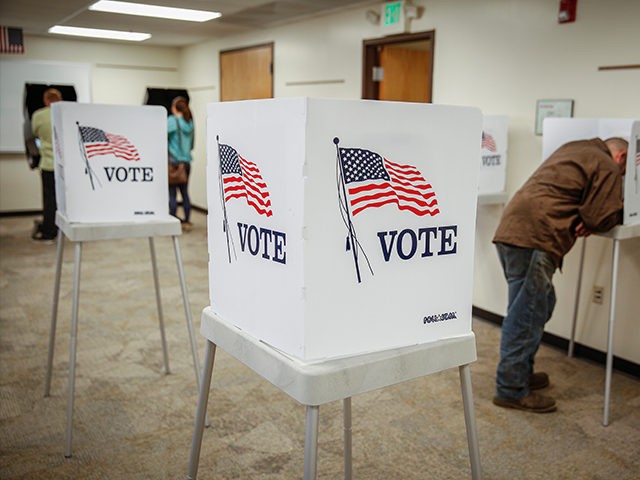The North Texas man indicted in an ongoing Dallas County voter fraud investigation pleaded guilty to a lesser charge this week. He was sentenced to serve six months in jail, according to the Office of the Dallas County District Attorney.
On Wednesday, Faith Johnson, the Dallas County DA, announced that Miguel Hernandez, 28, pleaded guilty to one count of “method of returning marked ballot” and was sentenced to 180 days, the equivalent of six months, in jail.
“This is the first of many milestones in the ongoing investigation into voter fraud in Dallas County,” said Johnson in a written statement. “As I have stated many times before, the right to vote is the cornerstone of our democracy. We must protect the process so that all citizens may have confidence in the system. It is my hope, with this conviction, that we will send a message to anyone who dares to threaten the integrity of the voting process. We will not tolerate it and you will be brought to justice.”
In 2017, Hernandez was accused of forging the absentee ballots of unsuspecting elderly voters. Breitbart Texas reported that one Dallas senior citizen, ultimately, identified him in a police lineup as a man named “Jose Rodriguez” who picked up her unsigned mail-in ballot from her home in April. Allegedly, Hernandez filled it out and signed the ballot under the pseudonym, mailing it into the county elections registrar’s office for a May municipal election. In July, a Dallas grand jury indicted Hernandez in absentia on a second degree felony count of illegal voting. At the time, he was believed to be on the run, although, soon thereafter, officials apprehended him, booking him into the Dallas County Jail on $100,000 bail.
On Thursday, a spokeswoman with the Johnson’s office confirmed by email to Breitbart Texas that, as part of a plea agreement, Hernandez pleaded guilty to the lesser charge of unlawfully returning a marked ballot. This is a Class A misdemeanor, according to Texas Election Code, chapter 86, which addresses voting by mail conduct. Additionally, the spokeswoman indicated that Hernandez already fulfilled his 180-day jail sentence.
Last year, the county launched a criminal investigation into a May 2017 election following allegations of forged mail-in ballot signatures in two hotly contested Democrat city council races. This included the race for Democrat Mayor Pro Tem Monica Alonzo, the West Dallas favorite and front-runner for the District 6 Dallas City Council seat.
As a result, the Dallas County Elections Department sequestered roughly 700 suspicious mail-in ballots, temporarily halting the results of the election. Weeks later, the Dallas City Council reluctantly voted to accept the results although the election remained overshadowed by the ongoing investigation. Additionally, shocking audio surfaced, alleging more foul play with absentee ballots. On top of that, dozens of senior citizens in West Dallas and Grand Prairie filed complaints over absentee ballots they received but said they never requested. Subsequently, the Office of Texas Attorney General Ken Paxton joined the voter fraud investigation after Johnson requested assistance. She said it would help her to better expand resources in probing the suspicious ballots.
Following the Dallas election debacle, Governor Greg Abbott called a special legislative session to crack down on mail-in ballot voter fraud. The resulting law, Senate Bill 5, graduated penalties for repeat offenders from misdemeanor to felony status. It also prohibited the use of electronic signatures and required signature verification on absentee ballots. Any rejected mail-in ballots suspected of fraud must be reported promptly to the state AG’s office.
In early 2018, the Dallas County Commissioners Court voted to limit the number of mail-in ballots individuals may obtain from the elections department to thwart vote by mail fraud. However, some election integrity experts told Breitbart Texas this did little to curb any misconduct as it did not prevent anyone from privately printing absentee ballot applications from the county’s website. Apparently, this self-printing policy was in place when the voter fraud happened last year.
Soon thereafter, Dallas County found itself in a similar pickle with more than 1,200 suspicious looking mail-in ballot applications under review in a March primary.
Follow Merrill Hope, a member of the original Breitbart Texas team, on Twitter.

COMMENTS
Please let us know if you're having issues with commenting.